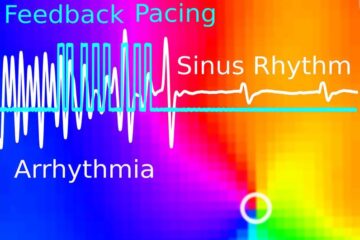Application of micro and nanotechnologies in systems for the rapid detection of pesticides and pathogens

Being involved as it is in the field of micro and nanotechnologies, AZTI-Tecnalia is currently taking part in the validation of microsystems for their application in foodstuffs, collaborating in the development of improvements in the “BIO” detection system. Thus, microsystems for their use in the rapid detection of pesticides and pathogens, amongst others.
As regards pesticides, an assessment of a microsystem for determining atrazine and 2,4,6- trichlorophenol in wine samples was presented. Likewise, and with reference to the detection of pathogens, the work undertaken with a prototype for a portable sensor capable of simultaneously detecting Salmonella spp. and Listeria monocytogenes in fish and dairy products was presented – a system which considerably reduces the detection time for these infections.
Research work carried out on a microsystem for the quality control of foodstuffs and food safety, particularly fish, was presented. The fish sector above all requires sensitive methods that are able to report on the state of conservation of their products. Thus, part of the research work focused on the determination of volatile substance produced by fish products during their storage and on defining molecular markers capable of indicating the useful or end-life of the same.
Finally, AZTI-Tecnalia informed about the applications and risks of micro- and nanotechnologies in the food sector. It is predicted that these technologies, still emerging ones in the sector, will provide innumerable advantages in the quality control of foodstuffs and food safety (design and development of intelligent packaging, new intelligent systems of traceability, development of nanoparticles with bactericidal action, new functional foodstuffs, etc). Nevertheless, there is considerable social awareness and concern regarding the use of nanomaterials in foods, due to the scant information provided on their possible effects on human health. This is why the scientific community is focusing their research work on the effects and toxicity of these nanomaterials, publishing new works and creating databases. In consequence, AZTI-Tecnalia is currently working on the development of a rapid toxicological test based on the zebra fish animal model, in order to find out the effects, in the short and the long term, of nanomaterials and nanoparticles that have applications in foodstuffs.
Media Contact
More Information:
http://www.elhuyar.comAll latest news from the category: Agricultural and Forestry Science
Newest articles

Wildfire danger to increase due to climate change
WSL Institute for Snow and Avalanche Research (SLF) researchers expect an elevated wildfire danger in the Alpine Foreland from 2040 onwards due to changing meteorological conditions. The danger currently remains…

Advanced Brain Science Without Coding Expertise
Researchers at Helmholtz Munich and the LMU University Hospital Munich introduce DELiVR, offering a new AI-based approach to the complex task of brain cell mapping. The deep learning tool democratizes…

Gentle defibrillation for the heart
Using light pulses as a model for electrical defibrillation, Göttingen scientists developed a method to assess and modulate the heart function. The research team from the Max Planck Institute for…





















